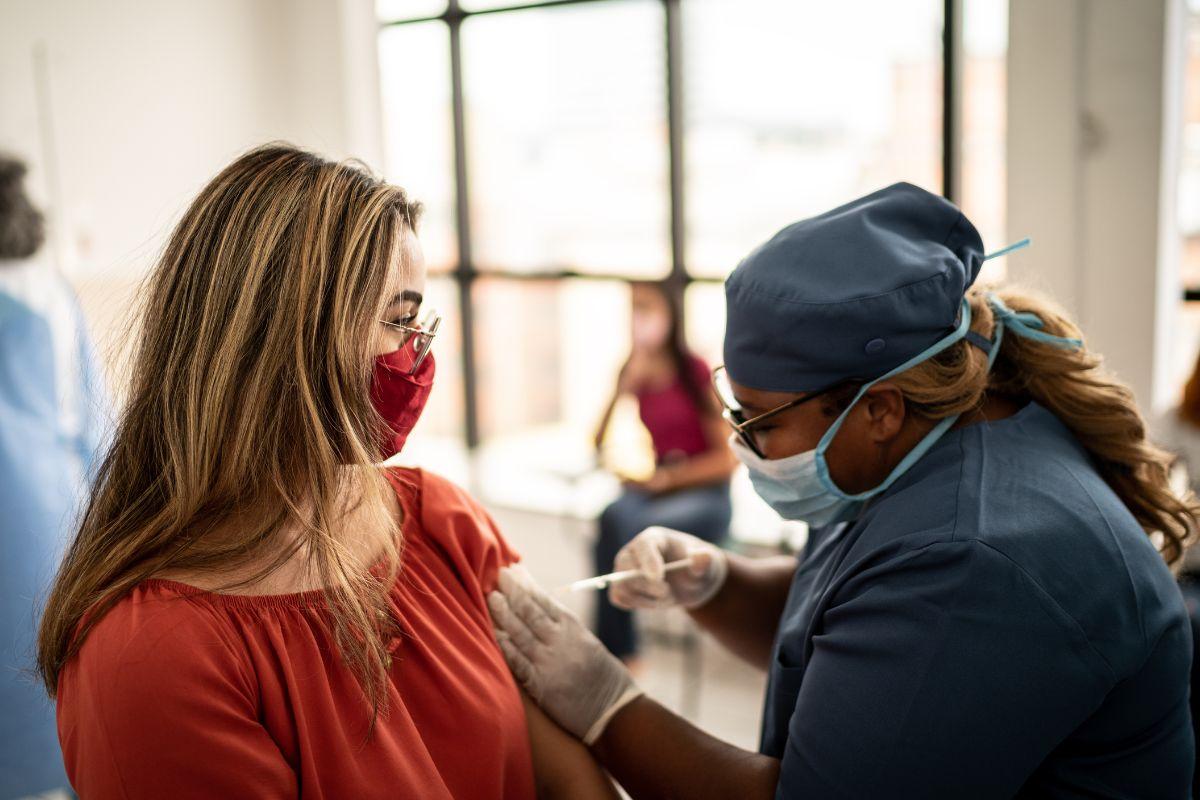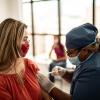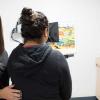
How Trust and Access Play into Getting the COVID-19 Vaccine
When the COVID-19 vaccine first became available starting in December 2020, long lines of people queued up at vaccination sites and appointment slots were quickly filled. But vaccine adoption varied, with Black/African American and Latino communities receiving the shot at lower rates than white people.
UCSF School of Nursing associate professors Orlando Harris, PhD, RN, FAAN, and Elena Portacolone, PhD, MPH, MBA, who studied COVID-19 vaccine intention among Black and Latino communities, discuss their findings and address misconceptions.
Q. What did your research uncover about COVID vaccine intention among Latino and Black communities?
Portacolone: In the summer of 2020, a few months after the pandemic started, we conducted two studies on vaccine intention – one with Latino participants and another with Black participants. This was before the COVID-19 vaccine was available.
Among Latino participants, four themes emerged as barriers to vaccination: concerns about health care access, financial worries, immigration matters and misinformation. There was considerable fear about health insurance and financial matters – what the vaccine would cost and concerns about loss of income if work was missed due to illness. Undocumented Latinos were worried about going to a clinic and utilizing government-provided tests and vaccines. Misinformation also deterred vaccination intention, particularly among older Latinos.

Harris: Black participants identified five main themes that influenced vaccine intention. Trust was a central factor. Other themes included uncertainty about what was going on with the pandemic and who to listen to for accurate information, feelings of systemic abandonment from the public health infrastructure, resistance to vaccines due to uncertainty and lack of trust, and difficulty accessing vaccinations.

Q. How does the concept of “trust” influence vaccine intention among Black communities?
Harris: There is a perception that Black communities lack trust in the U.S. health care system because of historical incidents of racism. My research has found that mistrust often stems from how Black individuals are treated in health care settings today. Current experiences of medical racism or lack of respectful care from health care professionals fosters mistrust.
Black study participants shared that they did not feel supported during the pandemic in ways they should have been. It led to feelings of distrust – distrust of the health care system, of government representatives and of community organizations. This distrust impacted some participants’ openness to receiving the COVID-19 vaccine.
Q. How can we work to build trust?
Harris: Trust is an everlasting enterprise. We must work to ensure that people are acknowledged, that they feel seen, that relationships continue after the research or clinical experience has ended.
Portacolone: A Black participant said, “trust is a form of love.” Trust is reciprocal. It’s long term. It takes time to nourish and nurture. But it can also fade away quickly if behaviors lack consistency. We must remember that trust is hard to earn, but easy to lose.
Q. There is a perception that Black and Latino communities were “vaccine hesitant” which contributed to lower COVID-19 vaccination rates. Is that accurate?
Harris: The perception that Blacks and Latinos were “vaccine hesitant” is a faulty notion that did a disservice to our communities. The problem was vaccine access.
People would go online to schedule their COVID-19 vaccine appointment only to discover that all the appointments were taken. In addition, structural barriers limited access to vaccines. Latino participants voiced immigration concerns while Black men shared that they did not feel safe at mass vaccination sites that were heavily policed. Others did not have adequate public transportation to access drive-through vaccination sites.
Portacolone: Our study found that Latino communities were willing to be vaccinated. What was lacking was a strong, culturally sensitive infrastructure to address health care needs and concerns. Over the last year, I have tested an intervention to increase the participation of Latinos in clinical trials. Our intervention focuses on education. It is culturally relevant, and it is led by Latinos. Similar models could be used to support Latinos in being vaccinated.
Q. What are your recommendations for effective vaccine initiatives?
Portacolone: It’s very important that initiatives are led by leaders from within their own communities. Latino and Black leaders need to be the ones making the decisions and voicing the needs of their communities, with us researchers serving them.
Harris: In early 2020, I participated in a video campaign hosted by Greater Than COVID and the Black Coalition Against COVID to encourage the Black community to get vaccinated. The video features Black nurses and doctors answering questions about the vaccine. It has been watched over 2.4 million times.
My hope is that we do more things like that. The community is more likely to listen and follow the recommendations of people that look like them. In all aspects of our work, representation matters.



